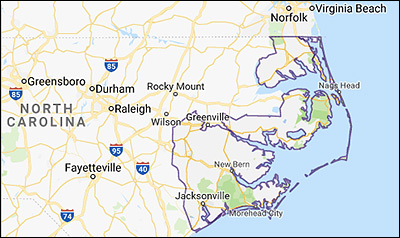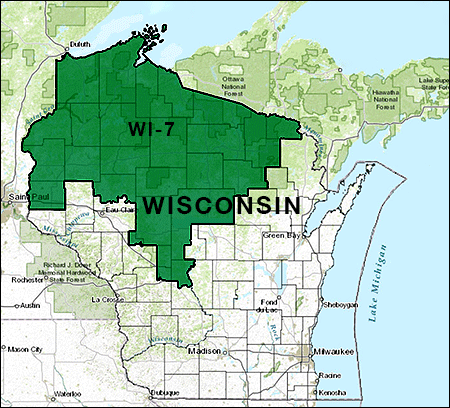By Jim Ellis
Sept. 13, 2019 — The recent North Carolina special elections’ polling appears slightly flawed, containing a pattern that came to the forefront in the previous presidential race. The weakness: under-estimating the Republican vote. Doing so became a major discussion point within the research community after they cumulatively missed the 2016 Trump-Clinton race but did not regularly appear in most of the subsequent midterm campaigns.
 In the two North Carolina special elections that were decided on Tuesday night, the winning Republican candidates exceeded the published polling projections. The same pattern also occurred in Pennsylvania back in late May when Rep. Fred Keller (R-Middleburg), while predicted to win comfortably, garnered a considerably larger vote percentage than projected when he scored a 68 percent special election victory.
In the two North Carolina special elections that were decided on Tuesday night, the winning Republican candidates exceeded the published polling projections. The same pattern also occurred in Pennsylvania back in late May when Rep. Fred Keller (R-Middleburg), while predicted to win comfortably, garnered a considerably larger vote percentage than projected when he scored a 68 percent special election victory.
Four different polls were publicly released during the week preceding Tuesday’s North Carolina elections. Only RRH Elections sampled the 3rd District and tested the eventual winner, state Rep. Greg Murphy (R-Greenville), against former Greenville mayor, Allen Thomas. The polling result projected Murphy to a 51-40 percent lead. He won 62-37 percent, meaning RRH under-estimated Murphy’s strength and over-estimated Thomas’.
The survey was conducted during the Aug. 26-28 period, two full weeks before the election, which means the situation on the ground could have certainly changed during the intervening time between the poll and the vote. Advertising was heavy during the campaign’s final two weeks, and the survey could not account for which campaign would be more adept at turning out its vote.
Three polls, from three different survey research firms, were released for the more competitive 9th CD at irregular times, and here RRH was the closest to the actual result. Their study was also conducted over the Aug 26-28 period, and it correctly forecast a close Dan Bishop win. At the time, RRH saw a 46-45 percent spread in favor of Bishop over Democrat Dan McCready, and the actual result was 50.7 – 48.7 percent.
Harper Polling, also testing during the same Aug. 26-28 span, missed. They projected McCready to be holding a five point, 51-46 percent advantage. At the time, we mentioned that their sample contained 56 percent female respondents, which could have been a major reason for the Democratic skew.
The final poll from a lesser known firm, co/efficient, also came very close to the actual result, projecting a 44 percent tie between the two candidates over a much later Sept. 5-6 period, but this result may have come through happenstance.






